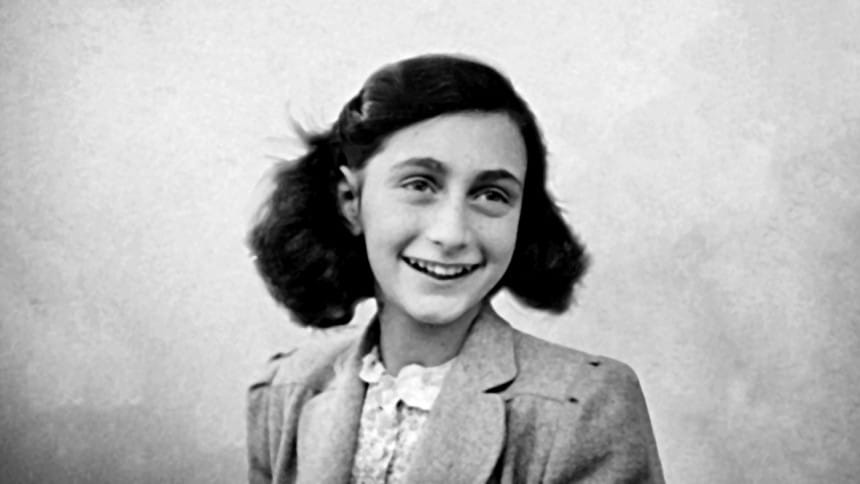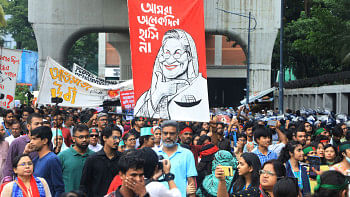A Tribute to Anne Frank

“…because when everybody starts hovering over me, I get cross, then sad, and finally end up turning my heart inside out, the bad part on the outside and the good part on the inside, and keep trying to find a way to become what I’d like to be and what I could be if… if only there were no other people in the world.”- These were the last words Anne Frank wrote in her diary on this day seventy-five years ago.
Annelies Marie Frank, better known as Anne Frank, was born in 1929, in Frankfurt-am-Main, Germany. Because the family was Jewish, they moved to Amsterdam, the Netherlands soon after Adolf Hitler came to power in 1933. They somehow managed to restore normalcy to their lives in this new country. The family was together and to them that was all that mattered. But even this was shattered in 1940 when Germany invaded the Netherlands and the Nazis started rounding Jews up before sending them to ‘work camps’ in the east. Today we all know what the true nature of these camps were. We know those were not the ‘relocation camps’ that the Nazis claimed they were.
The situation kept worsening and in July 1942, when Anne’s elder sister Margot was ordered to report for deportation, the family went into hiding. They were soon joined by four family friends and were helped and protected by a group of loyal non-Jewish friends. Anne started keeping a diary in June 1942 and continued to write entries in hiding, recording not only their day-to-day lives but also pouring out her soul and documenting her innermost feelings, desire to be understood and intention to change the world. Her diary entries reflect her gradual maturity and emotional depth, things she hid behind a chirpy and talkative exterior because those around her failed to appreciate her for who she was.
On August 4, 1944, three days after she wrote her final diary entry, the building in which they were hiding was raided by the Gestapos. The Franks, the van Pelses and Fritz Pfeffer (the eight Jewish people who hid in what Anne described as ‘The Secret Annex’) were arrested along with two of their non-Jewish helpers. The eight hiders were deported a month later and sent to Auschwitz, perhaps the most notorious Nazi concentration camp. Anne and Margot were transported to the Bergen-Belsen concentration camp in Germany in October, where they both died of typhus in March 1945.
After the raid of the Secret Annex, Anne’s diaries were saved by Miep Gies and Bep Voskuijl, two of the people who helped her hide during the war. After the war, Gies gave them to Otto Frank, Anne’s father, the only occupant of the Secret Annex to survive the war. Mr. Frank published the diaries in 1947 and over the years it has become a bestseller and one of the most widely read and translated books in history.
I first read Anne Frank’s diary when I was in third grade. I happened to discover it on my parents’ bookshelf and trust me, I won’t be exaggerating if I say that the book changed my life. When Anne wrote her diary entries, she was a few years older than I was at the time of reading. As I delved deeper into her thoughts and feelings, her words started making more sense to me. They started resonating deeply with me because I too felt left out, I too felt alone and isolated in spite of being surrounded by a sea of people. Although our reasons for feeling alone were different, I felt like we both looked for something we couldn’t find around us: being accepted for just who we were. For the longest time, I was the youngest member of my extended family. My cousins hardly, if ever, took me into their confidence and although it looks like a minor issue now that I look back at it, it left me scarred. In school, I was bullied for devouring Dickens and the Brontës while my classmates went gaga over action films. I felt out of place and abandoned. Discovering Anne’s diary brought me solace. I could relate to her when she wrote how her thoughts and ponderings were never taken seriously by her fellow hiders. She was pushed aside and often mocked when she tried to express her opinions, which is why she had to resort to her diary, her biggest confidant. She wrote about her longing for a world where there would be peace, tolerance and equality. She felt deeply about women’s rights. In her diary, she wrote about the indignation she felt thinking of the sufferings and discrimination women had been subjected to over the centuries. She wrote pages about the emancipation of women, about their right to live their lives on their own terms. Such maturity from a fifteen-year-old is not just surprising but also overwhelming, particularly when you think of the tragic end she met.
It has been ten years since I first read Anne Frank’s diary. Over the years, I have read books and reports, watched documentaries and films on my quest to know more about Anne and the person she was. I turned sixteen in 2015, an age Anne could never reach. But through her diary, through her wish to do good to the world, she immortalized herself. “I want to go on living even after my death,” she wrote. And through her words, through her desire to do good, through her longing to be understood and heard, she has stayed alive in our hearts. Her words remind us over and over again of her tragic fate, of what intolerance and hatred can do to humanity. Six million people were murdered in the what the Nazis called ‘The Final Solution’ and it did not stop there. Intolerance prevailed. Peace was shattered and lives were lost. We are reminded of the many innocent souls we lost in the Bangladesh Liberation War. We know what has been going on in Palestine. Innocent lives are being lost to hatred and intolerance. Will there ever be perfect peace in this world? I don’t know, but can’t we remember Anne’s words and dreams and work hard to make this world a better place to live in? At this point, I am being reminded of the words with which Austrian writer Melissa Müller ended her biography of Anne Frank: ‘In the end, the Nazi terror could not silence Anne’s voice, which still rings out for all of us, whom she had hoped so ardently to serve.’
Yes, her voice still rings out for all of us and we must play our own little roles to make Anne’s dream come true. Let there be peace. Let there be equality. Let there be tolerance.
Shounak Reza can be contacted at www.facebook.com/shounakreza

 For all latest news, follow The Daily Star's Google News channel.
For all latest news, follow The Daily Star's Google News channel. 



Comments